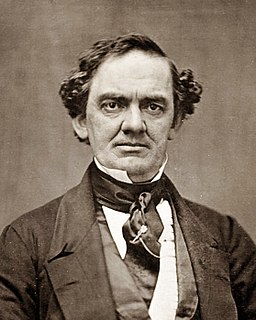A Quote by Mahatma Gandhi
Each and every one of you should consider himself to be a trustee for the welfare of the rest of his fellow labourers and not be self-seeking.
Related Quotes
One may desire a spurious respect and precedence among one's fellow monks, and the veneration of outsiders. "Both monks and laity should think it was my doing. They should accept my authority in all matters great or small." This is a fool's way of thinking. His self-seeking and conceit just increase.
The American city should be a collection of communities where every member has a right to belong. It should be a place where every man feels safe on his streets and in the house of his friends. It should be a place where each individual's dignity and self-respect is strengthened by the respect and affection of his neighbors. It should be a place where each of us can find the satisfaction and warmth which comes from being a member of the community of man. This is what man sought at the dawn of civilization. It is what we seek today.
I want everyone to keep the property that he has acquired for himself according to the principle: benefit to the community precedes benefit to the individual. But the state should retain supervision and each property owner should consider himself appointed by the state. It is his duty not to use his property against the interests of others among his own people. This is the crucial matter. The Third Reich will always retain its right to control the owners of property.
Here I encounter the most popular fallacy of our times. It is not considered sufficient that the law should guarantee to every citizen the free and inoffensive use of his faculties for physical, intellectual and moral self-improvement. Instead, it is demanded that the law should directly extend welfare, education, and morality throughout the nation. This is the seductive lure of socialism. And I repeat: these two uses of the law are in direct contradiction to each other.
Impress upon children the truth that the exercise of the elective franchise is a social duty of as solemn a nature as man can be called to perform; that a man may not innocently trifle with his vote; that every elector is a trustee as well for others as himself and that every measure he supports has an important bearing on the interests of others as well as on his own.
Only to the extent that someone is living out this self transcendence of human existence, is he truly human or does he become his true self. He becomes so, not by concerning himself with his self's actualization, but by forgetting himself and giving himself, overlooking himself and focusing outward.
Every human being should be taught that his first duty is to take care of himself, and that to be self-respecting he must be self-supporting. To live on the labor of others, either by force which enslaves, or by cunning which robs, or by borrowing or begging, is wholly dishonorable. Every man should be taught some useful art.
The young man who addresses himself in stern earnest to organizing his life-his habits, his associations, his reading, his study, his work-stands far more chance of rising to a position affording him opportunity to exercise his organizing abilities than the fellow who dawdles along without chart or compass, without plan or purpose, without self-improvement and self-discipline.
Let the watchwords of all our people be the old familiar watchwords of honesty, decency, fair-dealing, and commonsense."... "We must treat each man on his worth and merits as a man. We must see that each is given a square deal, because he is entitled to no more and should receive no less.""The welfare of each of us is dependent fundamentally upon the welfare of all of us.
Love or affection towards an individual or nation, is indicated by good action snot merely be words. The adoration towards nation is expressed by works of welfare equally done by the ruler and theruled. The ruler himself must be engatged, in welfare of th country and also should select officials examining their involvement with the public god. Self-centered people greedy of the power should be kept away










































